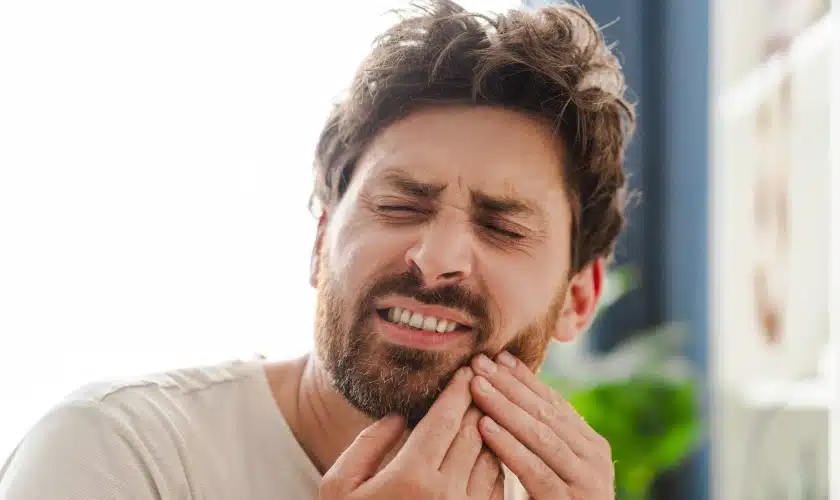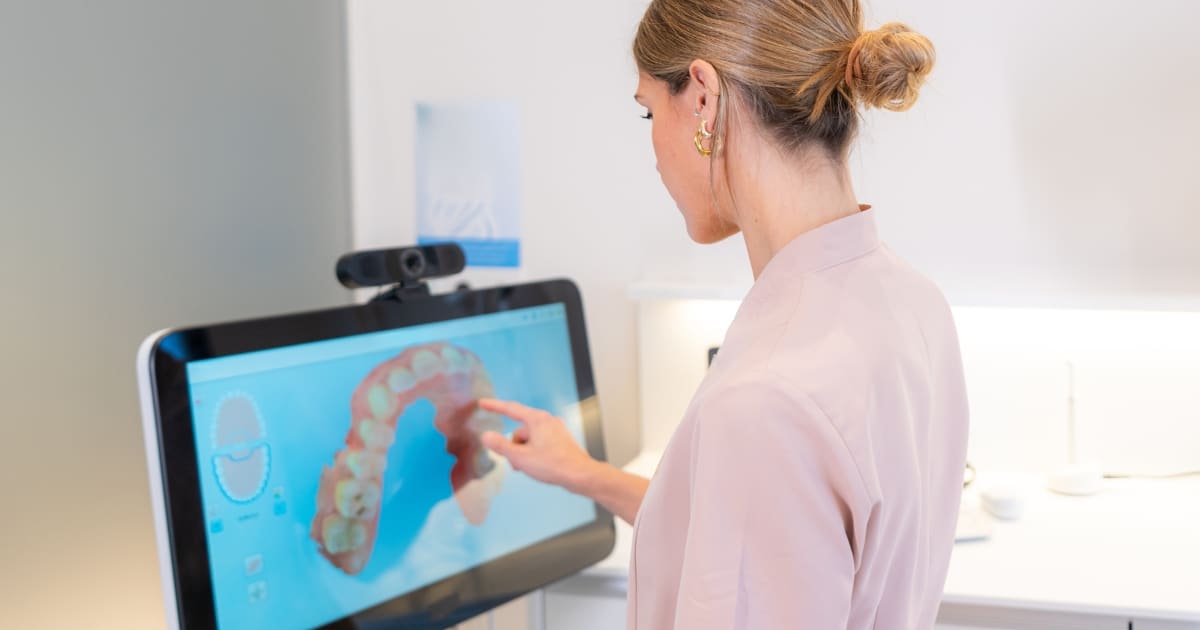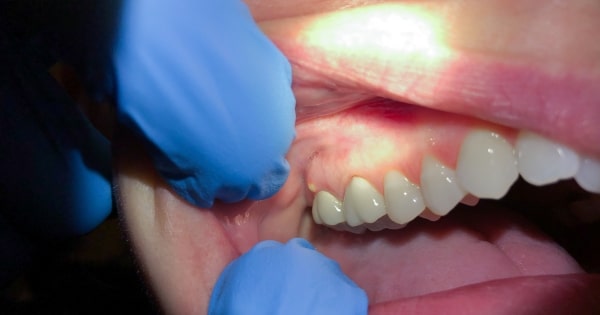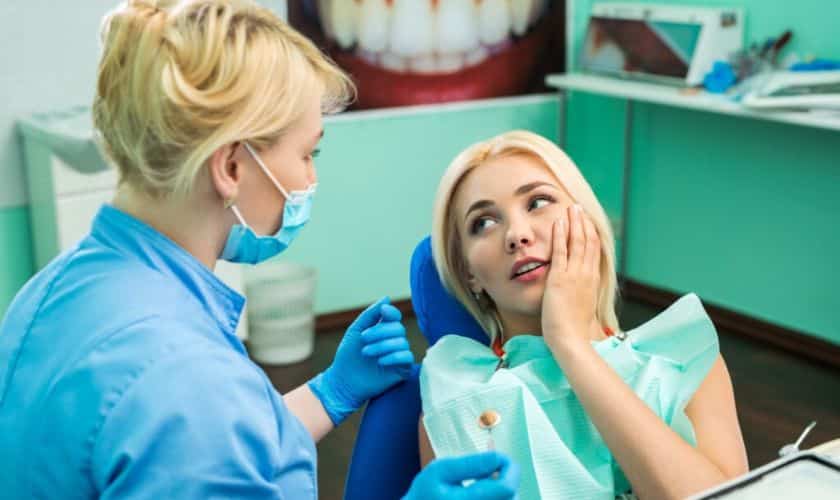
Picture this – it’s a beautiful sunny day, and you’re out enjoying your favorite activities. Suddenly, while biting into a crisp apple or sipping hot coffee, you feel excruciating pain in your tooth. Unfortunately, dental emergencies don’t wait for convenient times to strike, but luckily emergency dentistry is here to help! Knowing what to do during these situations can be the difference between saving or losing your precious smile, whether it’s a severe toothache, broken crown, or knocked-out tooth. In this blog post, we’ll explore how emergency dentistry can alleviate any dental distress and get you back to smiling confidently in no time!
What is an Emergency Dentistry?
If you are in pain and cannot go to the dentist, your best bet is to call an emergency dentist. These dentists can help you with dental issues, from tooth extraction to teeth restoration. In some cases, they can fix problems that have already started to develop by offering Emergency Dentistry.
Most emergency dentists offer a same-day appointment service. To qualify for this service, you will likely need to bring a recent photo of your teeth so the emergency dentist can diagnose them. Many emergency dentists also offer walk-in services on a first-come, first-served basis.
If you do not have an immediate dental issue, there are other ways to get help. First, you can contact your local dental society or community health center. They may be able to refer you to a local dentist who offers evening or weekend appointments.
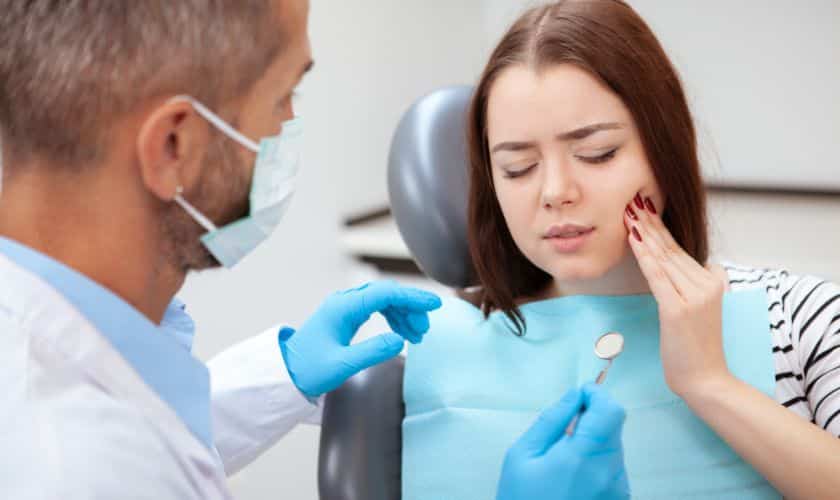
How can Emergency Dentistry help you?
If you have an emergency dental need, your emergency dentist can offer help.
Some of the services include:
Dentures and partial dentures: We can provide a comfortable, functional set or partial dentures to replace lost teeth.
Root canal: If your tooth is infected or has been damaged beyond repair, we can perform a root canal to save it.
Extraction: If you have broken or misplaced teeth, we can extract them.
Dental Emergencies: What to Know
If you’re experiencing pain in your mouth or tooth, don’t wait – get to the dentist as soon as possible! Dental emergencies can range from simple problems like a cracked tooth that needs to be repaired to more severe conditions like decay that needs to be removed. Here are some tips on how to deal with dental emergencies:
1. Know the signs of a dental emergency. If you experience any of the following symptoms, see a dentist immediately: severe pain when chewing or biting; a change in the color, shape, or size of your teeth; pus coming from your mouth; blood in your saliva; swelling in your face or jaw.
2. Call 911 if you experience a dental emergency. If you can’t get to the dentist alone, call 911 and tell them what’s happening. The paramedics can help take you to the hospital if necessary.
3. Tell your dentist about any medical conditions you have. Your dentist may need to adjust their treatment plan based on your health condition.
4. Keep healthy oral hygiene habits in mind during an emergency visit to the dentist. If you have a dry mouth (xerostomia), drink plenty of water before arriving at the office and keep drinking throughout your visit. Also, brush and floss regularly – even if it feels like there’s no time for it! And if you suffer from gingivitis
What to do if you Have a Dental Emergency
If you experience a dental emergency, don’t delay. Contact your dentist as soon as possible to schedule an appointment. If you can’t get to your dentist immediately, visit a local hospital or clinic for care.
Some common dental emergencies include toothache, broken tooth, lost tooth, infection, and oral cancer. In most cases, treatment can be done on-site at the dental office if necessary. However, some emergencies require immediate attention by a doctor or dentist.
Toothache: The pain from a toothache can be unbearable and make it difficult to eat or drink. To relieve the pain, try using ice packs or ibuprofen. Contact your dentist if the pain doesn’t disappear after 15 minutes of treatment.
Broken Tooth: If you have a broken tooth, it’s essential to take action immediately so the tooth can be repaired correctly and the bite protection it provides is maintained. Clean the area around the break with soap and water and rinse with cold water for 10 minutes to reduce swelling. Apply a bandage if needed, and contact your dentist as soon as possible to schedule an appointment.
Lost Tooth: If you lose a tooth in any way – even if it’s just out of reach – immediately seek medical help. Teeth fall out due to many factors (such as age, disease, and stress), so it’s important not to wait until the tooth is completely lost before seeking assistance.
FAQs about Dental Emergencies
If you have a toothache, it is essential to alleviate the pain as soon as possible. However, if the pain is severe, seek professional help. Here are some Frequently Asked Questions about dental emergencies:
1. What are some signs that I should go to the hospital?
This question has no definitive answer, as it depends on the individual’s symptoms and health history. However, some potential indications that you should go to the hospital include shortness of breath, fever, rapid heart rate, chest pain, or sudden vision changes. If you experience these symptoms while having a toothache, please consult your doctor immediately.
2. Can I do anything at home to relieve my toothache?
Yes! Many people find relief from their toothache at home by taking over-the-counter (OTC) pain relievers such as ibuprofen or acetaminophen. In addition, try using ice packs or a hot water bottle on your neck or jawline where the toothache is located. If these measures fail, see a dentist as soon as possible for additional help.
3. How can I make an appointment for emergency dentistry?
Most dental offices offer walk-in hours during which you can schedule an appointment for Emergency Dentistry without first seeing a doctor or nurse practitioner (NPP). Please call your local dental office before arriving so that they can have adequate staffing in case anyone else needs it.
In conclusion, emergency dentistry is a valuable resource that can provide vital assistance when dental emergencies occur. With the ability to address urgent oral health issues promptly, emergency dentists offer immediate relief, pain management, and necessary treatment. Their expertise and specialized equipment allow them to handle a wide range of dental emergencies effectively, helping to preserve your oral health and prevent further complications. By seeking emergency dental care, you can find comfort in knowing that professional help is available during critical situations. Being prepared and aware of emergency dental services in your area ensures that you can receive timely care when dental emergencies strike.
